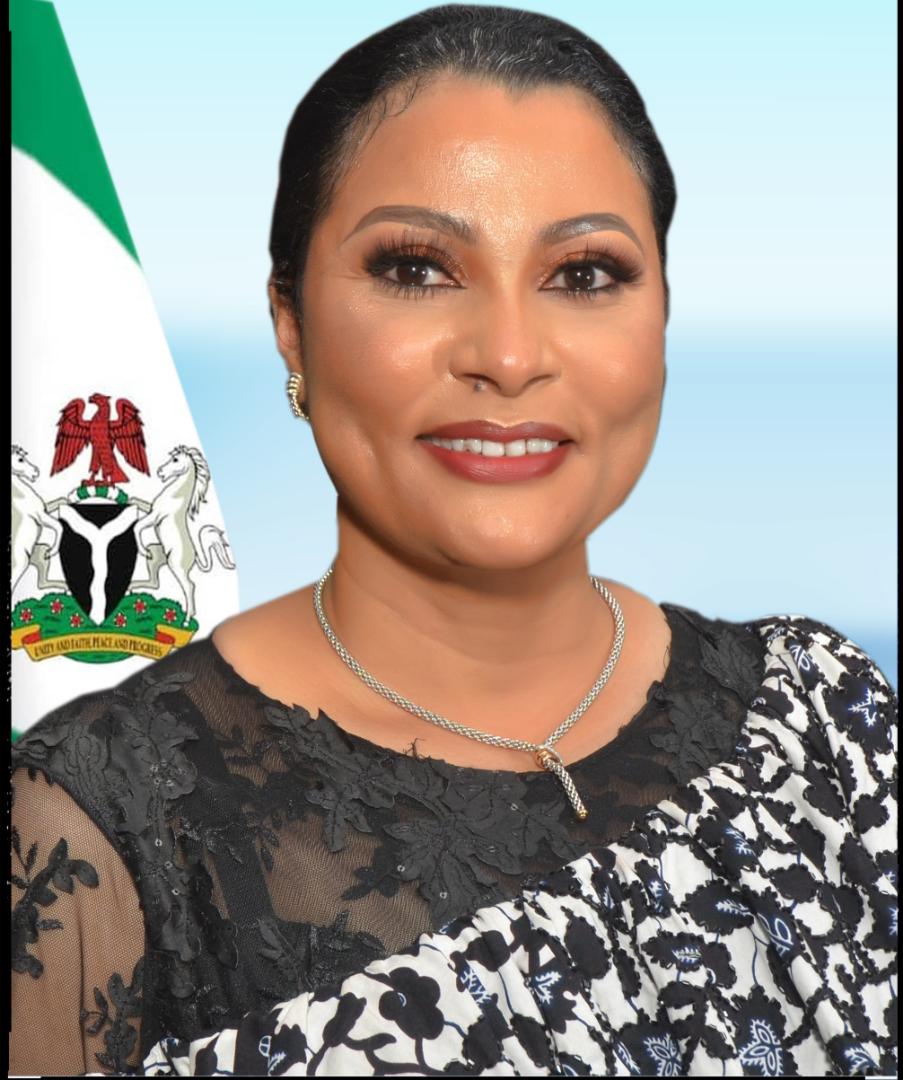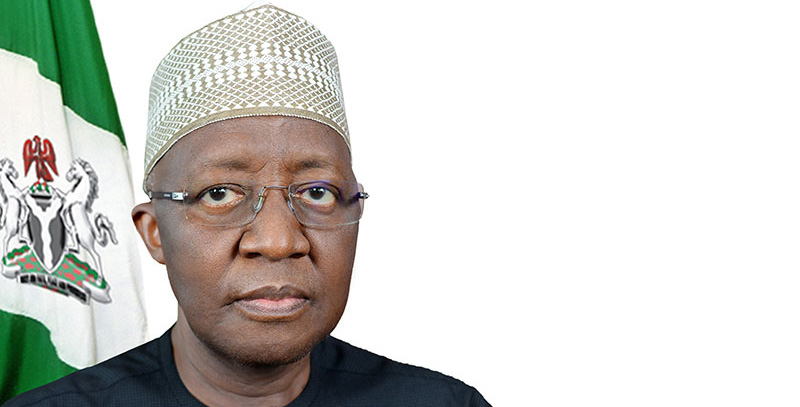Business
1,000 hackers attack population census server

.
Barely one week to a nationwide headcount, at least 1,000 hackers have invaded the National Population Commission (NPC) server.
This may be a way to frustrate the project aimed at obtaining accurate figured for economic planning and other related matters.
Manager at the National Population Commission, NPC, Dr. Inuwa Jalingo, disclosed this l at ‘Bloggers/Social Media Interactive Workshop For A Successful 2023 Population and Housing Census’ in Abuja.
He was fielding questions after presenting his paper entitled: ‘Enumeration Area Demarcation/Process and Methodology of the 2023 Population and Housing Census’.
Jalingo however said the situation had been put under control through “specialised workforce, Information and Communication Technologies (ICT) classes and mop-up phase.”
According to him, the United Nations (UN) recommendations for the 2020 round of censuses specify that countries should leverage digital tool for the conduct of censuses.
“The 2023 PHC – Nigeria’s first Digital Census – will employ innovative digital tools and procedures to improve the census-taking process. These tools have been adopted and integrated into the census processes, including in the Enumeration Area Demarcation (EAD), pretesting of tools, recruitment, data quality management, monitoring and evaluation, project management, communications, main data collection fieldwork monitoring and dissemination.”
He gave the goals of adopting technology in the 2023 PHC as to track and ensure complete coverage of the country during the census; reduce errors in the entire census process including in field data collection; facilitate real-time data transfer for quality checks within the census fieldwork period; reduce timelines and facilitate efficient deployment of resources improve field management and facilitate monitoring of workflows; ensure timely publication of census results.
Jalingo said, “The key 2023 Nigeria PHC tools that are digital or technology-aided include Census Mapping Tools, Census Field Data Collection Tools, Recruitment Portal, Enumeration Dashboard, Logistics Management Data Quality Management, Quality Assurance (QA), Monitoring and Evaluation Training, Project Management, Call Centre and Situation Room.”
Auto
We expect massive roll-outs of Nigeria-made cars by December 2024 – Minister

We expect massive roll-outs of Nigeria-made cars by December 2024 – Minister
Nigeria now has the capacity and materials to manufacture made-in-Nigeria cars for local use and export, the Federal Government has said.
Minister of Industry, Trade and Investment, Dr Doris Uzoka-Anite, stated this at the Automotive Component Manufacturers meeting in Abuja.
She said local manufacturers should be be held responsible if they fail to deliver massively Nigeria-made cars at the end of this year.
The minister said notwithstanding challenges facing the nation’s automobile industry, with the enabling environment being provided by the government, manufacturers should be held responsible if the cars are not rolling out by December 2024.
Newstrends reports a total of 37 firms were licensed automobile manufacturers/assemblers in Nigeria as of March 2023.
This figure is contained in the NADDC Updated List of the Accredited Locally Manufactured Brand in Nigeria.
Nigeria is said to currently produce less than 10 per cent of the 400,000 vehicles being used in the country.
The minister said, “As far as we are concerned, the auto industry is now set to go. We are counting on all stakeholders to make that happen.
“If we do not produce made-in-Nigeria cars before the end of this year (December), it will be your fault, because I am sitting down here giving you all the assurances that this administration has created the enabling environment to make sure that the auto policy kicks off.”
A statement by the ministry’s Director of Information and Public Relations, Adebayo Thomas, said the minister emphasised the need for collaboration among manufacturers, dealers, regulatory bodies and other players in the automobile industry.
She stressed that by working together, they could address challenges, streamline processes and drive innovation.
Even as she emphasised the need for local content, she urged stakeholders to maintain high-quality standards in vehicle manufacturing, safety features, emissions control and after-sale services.
This, she said, would boost consumer confidence and attract investment.

Business
N50,000 presidential grant: 100,000 small businesses benefit in first phase

N50,000 presidential grant: 100,000 small businesses benefit in first phase
A total of 100,000 small businesses across the country have so far received a presidential grant of N50,000 under the first phase of the Trade Grants Scheme.
Minister of Industry, Trade and Investment, Doris Uzoka-Anite, disclosed this, adding that one million nano businesses would benefit from the scheme.
A report by Saturday Punch quoted the minister as saying this through her aide, Terfa Gyado, in an interview with the newspaper.
Newstrends notes that the grant aimed at driving sustainable economic growth at the grassroots level will be disbursed with 70 per cent going to women and youths, 10 per cent individuals with disabilities, and five per cent senior citizens, and the remaining 15 per cent allocated to other groups.
Bank of Industry (BOI) was appointed as the executing agency for the funds.
The minister said the disbursement which began a few weeks ago would be distributed to 1,291 nano businesses in each of the 774 local governments in the country.
The Federal Government in December announced the Presidential Conditional Grant Scheme to empower small businesses as part of the Presidential Palliatives Programme.
It said a total of N200 billion would be disbursed through the BoI to support manufacturers and businesses across the country.
Aniete, giving an update on the scheme, said all verified applicants would receive their grants in subsequent phases.
The minister said, “The Presidential Conditional Grant Scheme kicked off a few weeks back and disbursement has been made to the first batch.
“Each grant applicant gets N50,000 while the applicants are judged by the criteria of owning a nano business and being verified using their Bank Verification Number and their National Identification Number.
“So those who were successfully verified on the nature of their business and all other criteria have been able to get some of the initial disbursement.”
The minister said the grant was paid directly to beneficiaries’ accounts after proper verifications with a target to reach one million small businesses in the 774 LGs and the six council areas in the Federal Capital Territory.
“The target is for one million nano businesses across the 774 local governments across the federation and that works out to a total of 1,291 nano businesses per local government and that is how the spread is going to be.
“So far, the disbursement has hit about 100,000 small businesses and they have got the initial disbursement and the target remains one million. “Disbursement is still ongoing and we are still waiting for data from across all the states and it is an ongoing process.”
Business
Reversing electricity tariff hike will cost us N3.2 trillion – FG

Reversing electricity tariff hike will cost us N3.2 trillion – FG
The Federal Government has said the reversal of the current increment in electricity tarrif will put more financial pressure on it.
The government said it would need about N3.2 trillion to subsidise and shoulder the cost of electricity this year should the recent hike be canceled.
Sanusi Garba, the chairman, Nigeria Electricity Regulatory Commission (NERC), made this known at a stakeholders’ meeting organised by the House of Representatives committee on power in Abuja on Thursday.
He said that the current investments in the power sector were not enough to guarantee a stable electricity supply nationwide.
He added that if nothing was done to tackle foreign exchange instability and non-payment for gas, the sector would collapse.
Garba disclosed that prior to the tariff review, Electricity Distribution Companies (DisCos) were only obligated to pay 10 per cent of their energy invoices, adding that lack of cash backing for subsidy had created liquidity challenges for the sector.
He added that the inability of the government to pay subsidy led to continuous decline in gas supply and power generation.
READ ALSO:
- Bandits gun down 23 villagers in Kaduna community
- Netizens knock Tinubu aide, Onanuga, over comment on Yahaya Bello arrest
- Boy, 19, nabbed for raping 9-year-old girl in Kwara
He said that the continued decline in the generation and system collapse were largely linked to liquidity challenges.
He said from January 2020 to 2023, the tariff was increased from 55 per cent to 94 per cent of cost recovery.
He added that “the unification of FX and current inflationary pressures were pushing cost reflective tariff to N184/kWh”
“If sitting back and doing nothing is the way to go, it will mean that the National Assembly and the Executive would have to provide about N3.2 trillion to pay for subsidy in 2024,” he said.
Mr Garba said that only N185 billion out of the N645 billion subsidy in 2023 was cash-backed, leaving a funding gap of N459.5 billion.
The vice-chairman of NERC, Musiliu Oseni, also justified the recent tariff increase, saying the increment was needed to save the sector from total collapse.
Rep. Victor Nwokolo, the chairman of the committee, said the goal of the meeting was to address the increase in tariff and the issue of band A and others.
Mr Nwokolo said the officials of NERC and DISCOS had provided useful Information to the committee.
“We have not concluded with them because the Transmission Company of Nigeria is not here and the Generation Companies too.
“From what they have said which is true, is that without the change in tarrif, which was due since 2022, the industry lacks the capital to bring the needed change.
“Of course, the population explosion in Nigeria, is beyond what they have estimated in the past and because they need to expand their own network, they also needed more money, ” he said
Reversing electricity tariff hike will cost us N3.2 trillion – FG
-

 News6 days ago
News6 days agoNLC, TUC jointly propose N615,000 new minimum wage
-

 Sports5 days ago
Sports5 days agoUnited in hot chase for Osimhen amid transfer speculations
-

 International6 days ago
International6 days agoIran confirms attack on Israel, warns other countries
-

 News5 days ago
News5 days agoElectricity workers reject FG’s appeal, insist on strike
-

 Business5 days ago
Business5 days agoNigeria’s oil production drops by 2.8 million barrels in one month
-

 News5 days ago
News5 days agoNigeria records another nationwide blackout as grid collapses
-

 metro5 days ago
metro5 days agoEkpa offers to strengthen Israeli army with 15,000 IPOB ‘troops’
-

 News4 days ago
News4 days agoChurch testimony: Vera Anyim speaks after meeting with Pastor Enenche






















